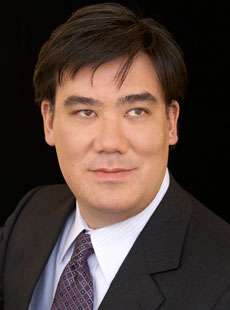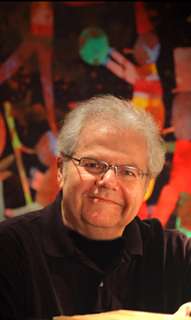|
Back
Bruckner Without Tears New York
Avery Fisher Hall, Lincoln Center
04/24/2013 - & April 25, 27, 2013
Wolfgang Amadeus Mozart: Piano Concerto No. 25 in C Major, K. 503
Anton Bruckner: Symphony No. 3 (1959 Nowak edition, based on the 1890 edition)
Emanuel Ax (Pianist)
New York Philharmonic Orchestra, Alan Gilbert (Musical Director/Conductor)

A. Gilbert (© New York Philharmonic)
With the Staatskapelle Dresden doing the Eighth five days ago, and the Phil doing the Third this week, the Bronx could give up its claim to Bruckner Boulevard and give the name to those ten blocks between Carnegie Hall and Avery Fisher Hall.
Not that the Bruckner performances had much in common. Next to the Eighth, the mere 55 minutes of Bruckner’s Third Symphony was like a mere bagatelle. More important, though, was the difference in performance. In a way, it was like the difference between a dark mysterious Albrecht Dürer forest and the bright sunlit forests of Wagner’s Siegfried.
The Dresden orchestra played Bruckner according to the printed notes, almost literally. Conductor Thielemann, with the warm but not blazing orchestral forces, gave us a meditative, internal difficult Bruckner which, for those listening carefully, was an exercise in a personal glow. Alan Gilbert, from the very first downward three horn notes, produced a blazing Bruckner whose instruments sang out, whose fanfares could be triumphant and whose more meditative moments seemed like interludes.
That, perhaps, gave a certain problem to the symphony. Mr. Gilbert’s brass section is today a brilliant consort, perhaps the most outstanding in the orchestra. Thus, the first and final movements were paeans to a gorgeous Bruckner tapestry, not homage to the mysteries of the Cosmos, but an unveiling of its glorious colors.
That also made the scherzo actually a beautiful image of Bruckner which was more light than levitated. Granted the Trio of the Eighth is fairly morbid, but in the Third, the ländler has such a feathery folkish quality that a few dancers coming out of the mist–something like the ghostly ballroom dancers of Kubrick’s The Shining–would not have been amiss.
So dazzling was this performance that the slow movement simply was unable to possess that inner gravity which Bruckner so needed. The usual descriptions say that Bruckner’s adagios are the hearts and souls Here, in this so glorious presentation, the Mehr langsam was anything but Misterioso.
Never mind. If this was Bruckner without tears, it was Bruckner that exalted the spleen as well as the ears.

E. Ax (© Maurice Jerry Beznos)
Mr. Gilbert’s program notes tried to equate Bruckner with Mozart, but that was a hard sell for reasons too evident to go into here. (Though an A for effort). Then again, hearing Emanuel Ax–our lucky fortune to have him as artist-in-residence this year–play Mozart or anything else is simply joy.
The Mozart late C Major Concerto is not everybody’s favorite. It doesn’t have those easy whistleable tunes of the 23rd or the surprising changes of key or theme. Instead, its trademarks are changes from major to minor in the first and last movement which can be unnerving.
Not, though, with Mr. Ax. I imagine that this relations with any conductor are quite beatific. But with Alan Gilbert, Emanuel Ax doesn’t so much have a relationship as an innate force.
In fact, their combination reminds me of an interview I once had with Toshiro Mifune, where he told me that Kurusawa never ever “directed” him.
“We knew,” he said...”we knew without speaking”
Mr. Ax played it with power when necessary, playing that oh so perfect slow movement, and using Alfred Brendel’s cadenza for the first movement, taking the second theme to far off wonderful places. But one need not say anything more about Emanuel Ax. Like Mifune, he knows. And after he finished the Mozart, we knew Mozart pretty well ourselves.
Harry Rolnick
|